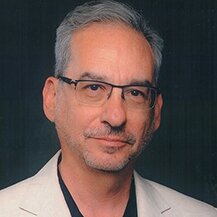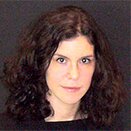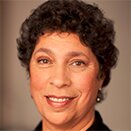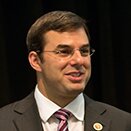Cato University 2016
Summer Seminar on Political Economy
July 24 - 29, 2016
Cato Institute • 1000 Massachusetts Ave, NW • Washington, DC
About Cato University | Schedule and Presentations
Schedule
| Sunday, July 24 | |
| 3:00 – 6:00PM | Registration (Rose Wilder Lane Hall) |
| 6:30 – 7:30PM | Reception (Ken & Frayda Levy Liberty Garden) |
| 7:30 – 9:30PM | Dinner speaker: Tom Palmer, The Science of Liberty |
| 9:30 – 10:00PM | Bastiat Scholarship Student Meeting (Richard & Sue Ann Masson Policy Center) |
| 9:30 – 11:00PM | After Dinner Discussion (The Lounge at Finn & Porter) |
| Monday, July 25 | |
| 8:00AM | Breakfast |
| 9:00 – 10:15AM | Jeff Miron, The Power of Incentives |
| 10:15 – 10:45AM | Break |
| 10:45 – 12:00PM | Tom Palmer, Origins of State and Government |
| 12:00 – 1:30PM | Lunch |
| 1:30 – 2:45PM | Tom Palmer, Freedom in an Historical Perspective |
| 2:45 – 3:15PM | Break |
| 3:15 – 4:30PM | Jeff Miron, The Economics of Cooperation and Coercion |
| 4:30PM | Free Time |
| 6:30 – 7:00PM | Reception (Ken & Frayda Levy Liberty Garden) |
| 7:00 – 9:00PM | Dinner speaker: Susan N. Herman, Is Freedom of Speech Dying? |
| 9:00 – 11:00PM | After Dinner Discussion (The Lounge at Finn & Porter) |
| Tuesday, July 26 | |
| 8:00AM | Breakfast (Roundtable discussions with policy staff) |
| 9:00 – 10:15AM | Rob McDonald, How Collectivism Nearly Destroyed America |
| 10:15 – 10:45AM | Break |
| 10:45 – 12:00PM | Randy Barnett, Why the Declaration of Independence Was Right |
| 12:00 – 1:30PM | Lunch |
| 1:30 – 2:45PM | Rob McDonald, American Revolution of Liberty |
| 2:45 – 3:15PM | Break |
| 3:15 – 4:30PM | Rob McDonald, Jefferson's Elections |
| 4:30PM | Free Time |
| 9:00 – 11:00PM | After Dinner Discussion (The Lounge at Finn & Porter) |
| Wednesday, July 27 | |
| 8:00AM | Breakfast |
| 9:00 – 10:15AM | Randy Barnett, Our Republican Constitution |
| 10:15 – 10:45AM | Break |
| 10:45 – 12:00PM | Emily Ekins, Liberty, Public Opinion, and the 2016 Election |
| 12:00 – 1:30PM | Lunch |
| 1:30PM | Free Time (Check the activities table in the registration area) |
| 6:30 – 7:00PM | Reception (Ken & Frayda Levy Liberty Garden) |
| 7:00 – 9:00PM | Dinner speaker: Megan McArdle, Capitalism, Insiders, and the Rise and Fall of Elites |
| 9:00 – 10:30PM | Bastiat Scholarship Student Meeting (Richard & Sue Ann Masson Policy Center) |
| 9:00 – 11:00PM | After Dinner Discussion (The Lounge at Finn & Porter) |
| Thursday, July 28 | |
| 8:00AM | Breakfast (Roundtable discussions with policy staff) |
| 9:00 – 10:15AM | Christopher A. Preble, A Foreign Policy for a Constitutional Republic |
| 10:15 – 10:45AM | Break |
| 10:45 – 12:00PM | Rob McDonald, The American Ordeal of Slavery |
| 12:00 – 1:30PM | Lunch |
| 1:30 – 2:45PM | Peter Van Doren, Economics of Health Care and Health Insurance |
| 2:45 – 3:15PM | Break |
| 3:15 – 4:30PM | Randy Barnett, The Modesty of Libertarianism |
| 4:30 – 5:00PM | Break |
| 5:00 – 6:00PM | Cato Scholars Panel, moderated by Brink Lindsey Download Video of Event |
| 6:30 – 7:00PM | Reception (Ken & Frayda Levy Liberty Garden) |
| 7:00 – 9:00PM | Dinner speaker: David Boaz, A Libertarian History of the World (Through a New Lens) |
| 9:00 – 9:30PM | Bastiat Scholarship Student Meeting (Richard & Sue Ann Masson Policy Center) |
| 9:00 – 11:00PM | After Dinner Discussion (The Lounge at Finn & Porter) |
| Friday, July 29 | |
| 9:00 – 10:15AM | Breakfast |
About Cato University | Schedule
 Under the direction of Tim Lynch, Cato's Project on Criminal Justice has become a leading voice in support of the Bill of Rights and civil liberties. His research interests include the war on terrorism, overcriminalization, the drug war, the militarization of police tactics, and gun control. In 2000, he served on the National Committee to Prevent Wrongful Executions. Lynch has also filed several amicus briefs in the U.S. Supreme Court in cases involving constitutional rights. He is the editor of In the Name of Justice: Leading Experts Reexamine the Classic Article “The Aims of the Criminal Law” and After Prohibition: An Adult Approach to Drug Policies in the 21st Century. Lynch is a member of the Wisconsin, District of Columbia, and Supreme Court bars. He earned both a B.S. and a J.D. from Marquette University.
Under the direction of Tim Lynch, Cato's Project on Criminal Justice has become a leading voice in support of the Bill of Rights and civil liberties. His research interests include the war on terrorism, overcriminalization, the drug war, the militarization of police tactics, and gun control. In 2000, he served on the National Committee to Prevent Wrongful Executions. Lynch has also filed several amicus briefs in the U.S. Supreme Court in cases involving constitutional rights. He is the editor of In the Name of Justice: Leading Experts Reexamine the Classic Article “The Aims of the Criminal Law” and After Prohibition: An Adult Approach to Drug Policies in the 21st Century. Lynch is a member of the Wisconsin, District of Columbia, and Supreme Court bars. He earned both a B.S. and a J.D. from Marquette University.
He is a provocative commentator and a leading authority on domestic issues such as education choice, drug legalization, the growth of government, and the rise of libertarianism. Boaz is the former editor of New Guard magazine and was executive director of the Council for a Competitive Economy prior to joining Cato in 1981. The earlier edition of The Libertarian Mind, titled Libertarianism: A Primer, was described by the Los Angeles Times as “a well-researched manifesto of libertarian ideas.” His other books include The Politics of Freedom and the Cato Handbook for Policymakers.
In 2004, Professor Barnett appeared before the U.S. Supreme Court to argue the medical cannabis case of Gonzalez v. Raich. He lectures internationally and appears frequently on radio and television programs such as the CBS Evening News, The News Hour (PBS), Talk of the Nation (NPR), Hannity & Colmes (FOX) and the Ricki Lake Show. He delivered the Kobe 2000 lectures in jurisprudence at the University of Tokyo and Doshisha University in Kyoto.
Professor Barnett’s scholarship includes more than eighty articles and reviews, as well as eight books, including Restoring the Lost Constitution: The Presumption of Liberty (Princeton, 2004),Constitutional Law: Cases in Context (Aspen 2008), and Contracts Cases and Doctrine (Aspen, 4th ed. 2008).
In addition to his work at Cato, Preble teaches the U.S. Foreign Policy elective at the University of California, Washington Center (UCDC). Before joining Cato in February 2003, he taught history at St. Cloud State University and Temple University. Preble was a commissioned officer in the U.S. Navy, and served onboard USS Ticonderoga (CG-47) from 1990 to 1993. Preble holds a Ph.D. in history from Temple University.
He received his bachelor’s degree from the MIT and his master’s degree and doctorate from Yale University.
Herman received a B.A. from Barnard College as a philosophy major, and a J.D. from New York University School of Law, where she was a Note and Comment Editor on the N.Y.U. Law Review. Before entering teaching, Professor Herman was Pro Se Law Clerk for the United States Court of Appeals for the Second Circuit, and Staff Attorney and then Associate Director of Prisoners' Legal Services of New York.
Rep. Justin Amash (R-MI) represents Michigan’s Third District in the 114th United States Congress. He was elected to his first term on November 2, 2010.
Justin was born in Grand Rapids, Michigan. He received his bachelor’s degree with High Honors in economics from the University of Michigan and his juris doctor from the University of Michigan Law School. He worked for his family’s business, as a business lawyer, and as a Michigan state representative
before his election to Congress.Justin has never missed a vote in Congress or in the Michigan Legislature out of more than 4,000 roll call votes. He is leading the incorporation of Facebook and other social media into his work as an elected official by posting an explanation of every vote online, and he has set new standards for transparency and accountability.
Justin believes government overspending is one of the biggest threats to our economic health and national security, and he has introduced an innovative balanced budget amendment—the Business Cycle Balanced Budget Amendment—to control government spending and reduce the national debt. He supports a fair and simple tax code and a regulatory environment that promotes economic prosperity.










